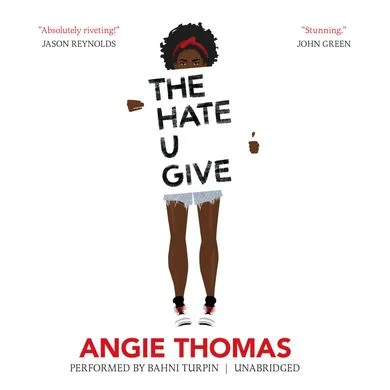The Hate U Give Movie Review
Photo source: proseandkahn.blogspot.org
By Allison Upchurch, Staff Reporter
The Hate U Give was the fifth movie in the lineup for last week’s Social Justice Film Festival put on by the Regis First Year Experience, the Center for Service Learning, and the Social Justice and Diversity Committee. All movies presented during this festival were focused on topics of race, critical explorations of social justice issues, and dialogue and conflict transformation.
Based on the number 1 New York Times bestselling young adult novel, The Hate U Give is about 16-year-old Starr (played by Amandla Stenberg) who witnesses the shooting of her childhood friend Khalil (played by Algee Smith) by a policeman after getting pulled over. Dealing with the trauma of that moment and wanting to keep a low profile, Starr struggles with both the portrayal of her friend as a criminal in the media and the outcry from her community that leads to city-wide protests calling for justice. Friendships are questioned, threats are placed upon her, and through it all Starr fights for courage and the chance to have her voice heard.
Cinematically, this movie is visually well constructed with crisp images of the events and it focuses on the sights through the perspective of Starr. Points of focus are represented in slow-motion capturing and gives the audience a moment to understand what Starr is thinking through her voice over narration. There is a sharp contrast of cultural differences in the set-up and filming locations of Starr’s community and the school that she goes to in the all-white part of town, which creates the tensions and conflicts that Starr deals with in the aftermath of the shooting.
This movie attempts to open minds and give an equal voice to those in the conversation about police brutality against black people. Both victims and families, media and the police force, have a say about what happens in these situations. Even though the film makers had good intentions in putting these conversations into light, the movie does not give any answers to solving this problem. That needs to come from the audience members themselves who step out of the movie and peacefully discuss the current situations with others and provide and execute answers that can lead to more civilized and less deadly outcomes for the future.
Overall, The Hate U Give is a promoter of one of the Jesuit value that is valued at this university. It is the value of “contemplatives in action” simply because it matches all the criteria – it thinks about social problems from multiple angles and works in thoughtful ways to actively address social justice issues. If “contemplatives in action” could be put in a movie form that reaches across all races and religious outlooks, The Hate U Give is a pretty good contender for being that movie.

